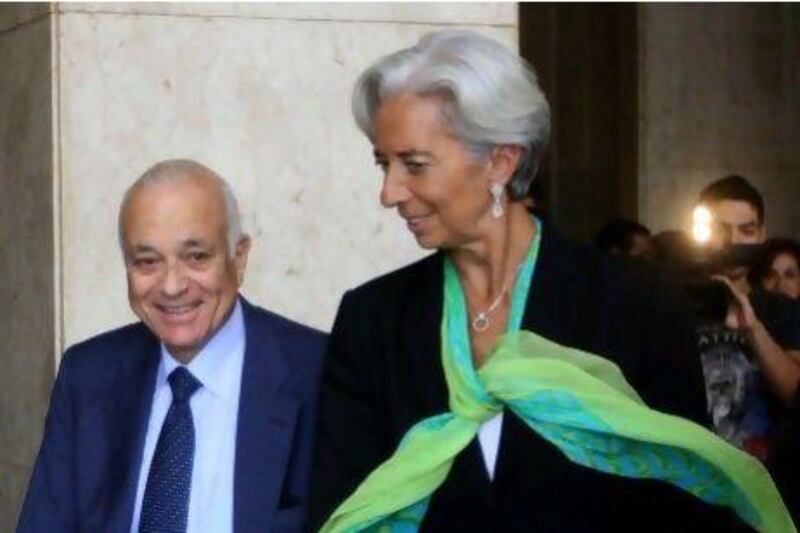The UAE and Egypt have thrown their support behind the IMF candidate Christine Lagarde as the French finance minister tours the Arab world to drum up support for her bid for the agency's top job.
Ms Lagarde said Bahrain and other Middle East nations were also backing her campaign.
Obeid Humaid al Tayer, the UAE Minister of State for Financial Affairs, said yesterday the "UAE's support for Lagarde to take up the post of the IMF director general sprang out of her role in leading the French Ministry of Finance and in recognition of her achievements, as well as the efforts she made during the G20 meetings under the rotating presidency of France."
"These meetings tackled important issues including those related to economic development, alleviating unemployment and high prices."
Meanwhile, Nabil al Arabi, the Egyptian foreign minister, expressed his support for Lagarde after talks with her yesterday in Cairo.
Saudi Arabia stopped short of offering its public support after Ms Lagarde's visit to Jeddah on Saturday, citing its destire for a greater role at the IMF, the Saudi finance minister Ibrahim al Assaf said.
Saudi Arabia did not want the IMF candidate presidency limited to a certain region, Mr al Assaf was quoted as saying during a press conference with Ms Lagarde in Jeddah. Instead, the kingdom would back the best candidate and the most efficient one from its viewpoint, the finance minister was reported as saying.
Ms Lagarde is competing with the Mexican central bank chief Agustin Carstensand the Bank of Israel governor Stanley Fischer for the vacant post of managing director of the IMF.
The contest is taking place against a debate about whether the candidate should continue to be a European. Historically, the IMF chief has been from Europe, with the president of the World Bank from the US.
A number of emerging markets have said the convention needs to change to reflect shifts in the global balance of power from the West.
"The traditional role of a European heading the IMF seems incredibly questionable given the changes in the global economy and the Gulf states will be looking for a rebalancing of the role they and other emerging markets play given how central their importance is globally," said Simon Williams, the chief economist at HSBC for the Middle East and North Africa.
Saudi Arabia has the biggest share of IMF voting rights among the GCC and has previously been vocal about backing plans to increase emerging market nations' influence in the fund, based in Washington.
Egypt has been a recent direct benefactor of IMF aid, with the organisation this month agreeing to lend US$3 billion (Dh11bn) to the country to help bolster its economy after the toppling of its former president Hosni Mubarak in February. Egypt has been struggling to fill a budget deficit it expects will widen to 10 per cent of GDP.
Ms Lagarde said on Saturday the IMF would help countries affected by the reform movement in parts of North Africa and the Middle East.





